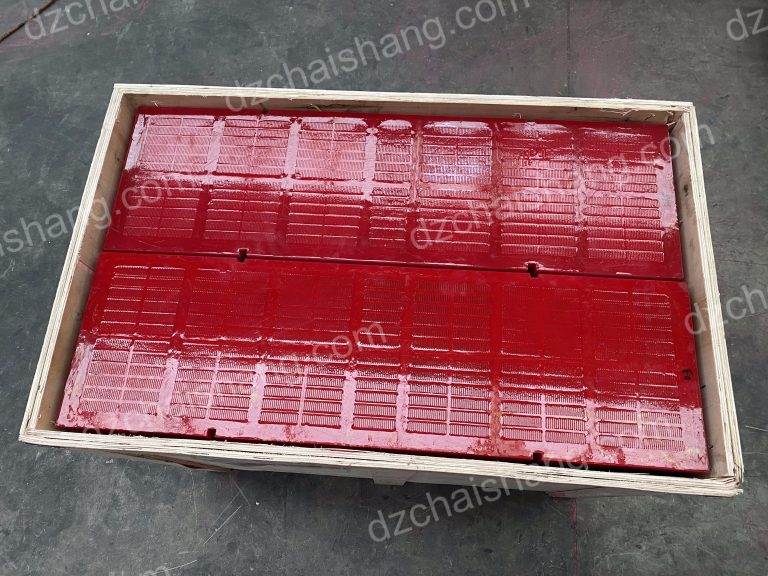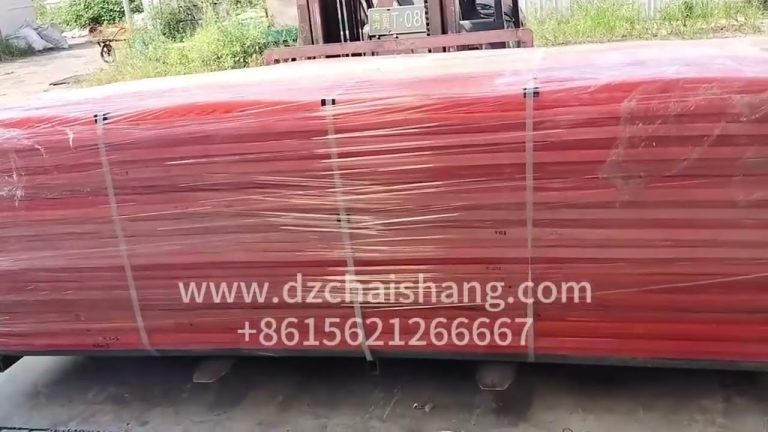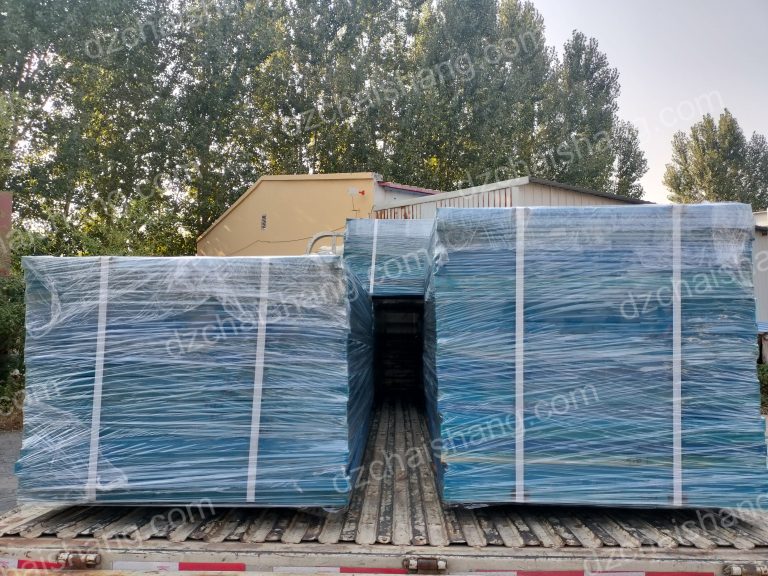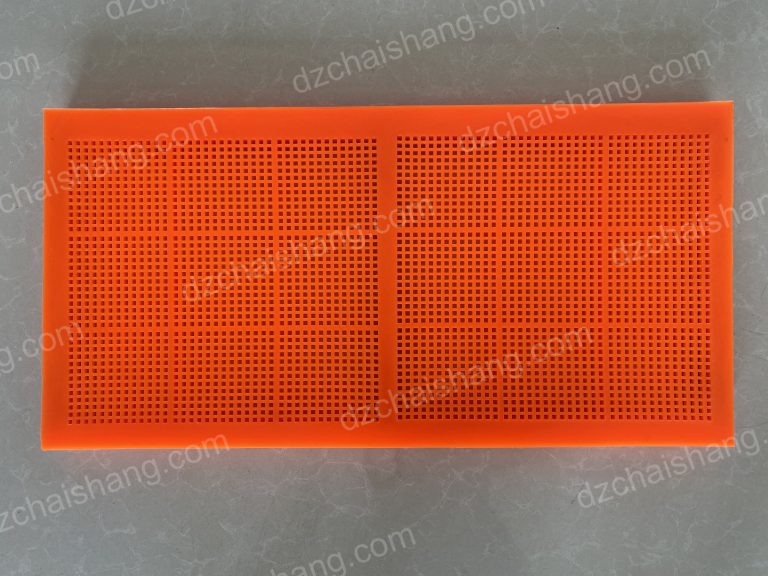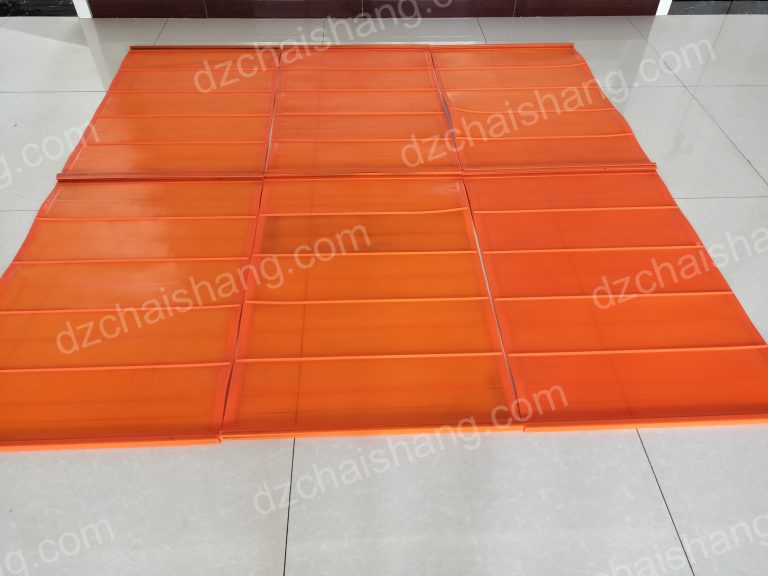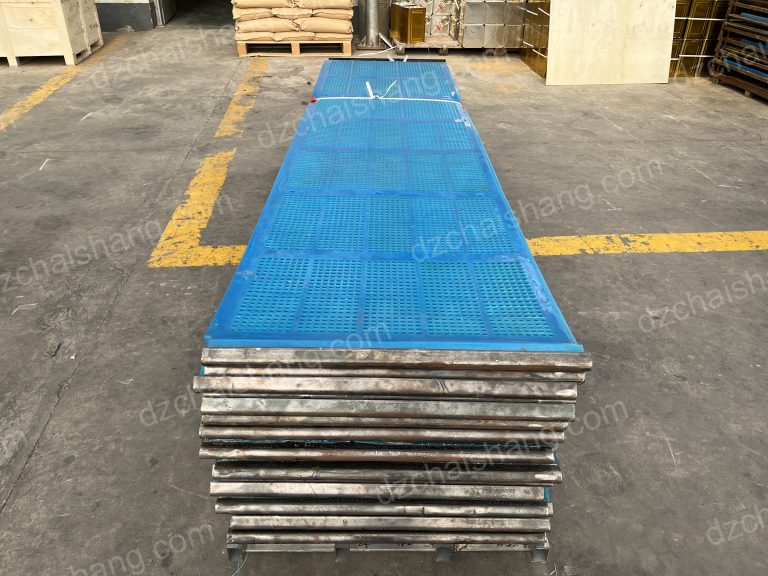rubber screen mesh,rubber screen media,rubber modular screening systems
Advantages of rubber screen mesh in Screening Applications Rubber screen mesh, rubber screen media, and rubber modular screening systems have become increasingly…
Advantages of rubber screen mesh in Screening Applications
Rubber screen mesh, rubber screen media, and rubber modular screening systems have become increasingly popular in various screening applications due to their numerous advantages. From mining to aggregate production, and even in the recycling industry, rubber screen mesh offers a range of benefits that traditional metal or synthetic screens often cannot match.
One of the primary advantages of rubber screen mesh is its durability. Unlike metal screens, which can corrode over time, or synthetic screens, which may wear out quickly, rubber screens are highly resistant to corrosion, abrasion, and impact. This durability ensures that rubber screens have a longer lifespan, reducing the need for frequent replacements and ultimately saving on maintenance costs.
Moreover, the elasticity of rubber screen mesh provides an added advantage in screening applications. This elasticity allows the screen to flex and absorb impact, reducing the likelihood of damage from high-velocity material or oversized rocks. As a result, rubber screens are less prone to failure and can withstand harsh operating conditions, making them ideal for heavy-duty applications.
In addition to their durability and flexibility, rubber screen media offer superior screening performance. The unique properties of rubber, such as its high coefficient of friction and self-cleaning capabilities, enable efficient material separation. Rubber screens effectively prevent blinding and pegging, ensuring consistent and reliable screening outcomes even with difficult-to-screen materials.
Furthermore, rubber modular screening systems offer versatility and customization options to suit specific application requirements. These systems consist of individual rubber panels that can be easily interchanged or replaced as needed, allowing for quick maintenance and adjustments. Additionally, rubber modular screening systems can be tailored to various screen deck configurations, ensuring optimal screening efficiency and throughput.
Another notable advantage of rubber screen mesh is its noise-reducing properties. Unlike metal screens, which can produce significant noise during operation, rubber screens dampen vibration and minimize noise levels. This is particularly beneficial in indoor or urban environments where noise pollution is a concern, allowing for quieter and more environmentally friendly screening operations.
Moreover, rubber screen media contribute to improved safety in screening applications. The absence of sharp edges or protruding wires reduces the risk of accidents and injuries during installation, maintenance, and handling. Additionally, the lightweight nature of rubber screens makes them easier to transport and maneuver, further enhancing safety on site.
From a sustainability perspective, rubber screen mesh offers eco-friendly benefits compared to traditional screening materials. Rubber is a recyclable material, and many manufacturers offer recycled rubber options for screen media. By using recycled rubber, companies can reduce their environmental footprint and contribute to a circular economy.
In conclusion, rubber screen mesh, rubber screen media, and rubber modular screening systems offer a multitude of advantages in screening applications. From enhanced durability and flexibility to superior screening performance and noise reduction, rubber screens provide a cost-effective and efficient solution for various industries. With their customizable options and eco-friendly properties, rubber screens continue to revolutionize the screening process, providing a sustainable and reliable solution for material separation needs.
How Rubber Modular Screening Systems Improve Efficiency and Longevity
Rubber screen mesh, rubber screen media, and rubber modular screening systems have emerged as integral components in various industries, revolutionizing traditional screening processes. These innovative solutions offer numerous benefits, including enhanced efficiency and longevity, making them increasingly popular choices for businesses seeking to optimize their screening operations.
Rubber modular screening systems are designed to withstand the rigors of demanding applications, providing superior durability compared to conventional screening materials. The use of high-quality rubber compounds ensures resistance to abrasion, impact, and corrosion, resulting in extended service life and reduced maintenance requirements. This enhanced durability translates into significant cost savings over time, as businesses can minimize downtime and avoid frequent replacements associated with traditional screening media.
Moreover, rubber modular screening systems offer exceptional flexibility and customization options, allowing for precise adaptation to specific processing requirements. Manufacturers can tailor the aperture size, thickness, and configuration of the screen panels to achieve optimal performance in various applications, from aggregate processing to mineral beneficiation. This versatility enables businesses to improve screening accuracy and efficiency, leading to higher throughput and product quality.
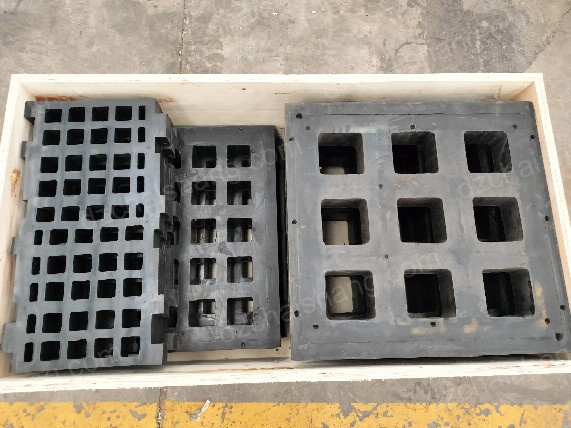
One of the key advantages of rubber modular screening systems is their ability to reduce noise levels during operation. The inherent damping properties of rubber absorb vibrations generated during the screening process, resulting in quieter equipment and a more conducive working environment. This noise reduction not only enhances operator comfort but also contributes to overall workplace safety and compliance with regulatory standards.
Furthermore, rubber modular screening systems exhibit superior screening performance compared to traditional media, thanks to their unique design features. The modular nature of the panels allows for easy installation and replacement, minimizing downtime and optimizing production uptime. Additionally, the self-cleaning action of rubber screens prevents blinding and pegging, ensuring continuous operation and consistent throughput even in challenging conditions.
In addition to their functional benefits, rubber modular screening systems also contribute to environmental sustainability by reducing material waste and energy consumption. The durable nature of rubber panels minimizes the need for frequent replacements, thereby reducing the volume of discarded screening media and associated disposal costs. Moreover, the energy-efficient operation of equipment equipped with rubber screens helps lower overall energy consumption, contributing to a greener and more eco-friendly manufacturing process.
Another noteworthy advantage of rubber modular screening systems is their compatibility with existing equipment and infrastructure. These systems can be seamlessly integrated into various screening machines, including trommels, vibrating screens, and scalpers, without the need for extensive modifications. This compatibility simplifies the retrofitting process and allows businesses to upgrade their screening operations cost-effectively, maximizing the return on investment.
In conclusion, rubber modular screening systems represent a significant advancement in screening technology, offering unparalleled efficiency and longevity compared to traditional media. Their durability, flexibility, and performance benefits make them indispensable assets for businesses across a wide range of industries. By investing in rubber modular screening systems, companies can enhance their productivity, reduce maintenance costs, and contribute to a more sustainable future for the manufacturing sector.

